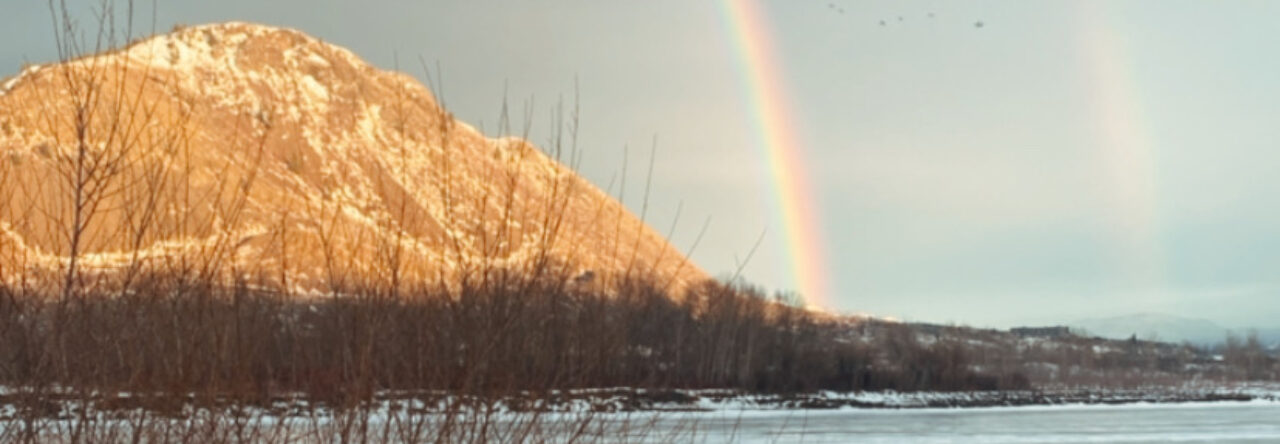Here you will find work I have completed for or during my Bachelor of Education.
My Teacher Toolbox
Here is a copy of my teacher toolbox. My teacher toolbox is a compiled list of strategies I plan on using in my future classroom. I’ve curated these strategies by observing, listening, and applying skills I have learned in my BEd program. The toolbox features many different types of useful tools to use in a classroom ranging from management strategies to classroom games. I hope you can adapt and apply these in your classroom.
My White-Washed Totem Pole
I wrote this poem as a reflection on Orange Shirt Day. I have always articulated my words to capture my thoughts best. This poem began as a completely different piece of writing, but as it came together, it felt wrong to submit this as an assignment only to be graded on style, grammar, and conventions. This piece is an apology from my personal perspective as a white-settler on colonized land.
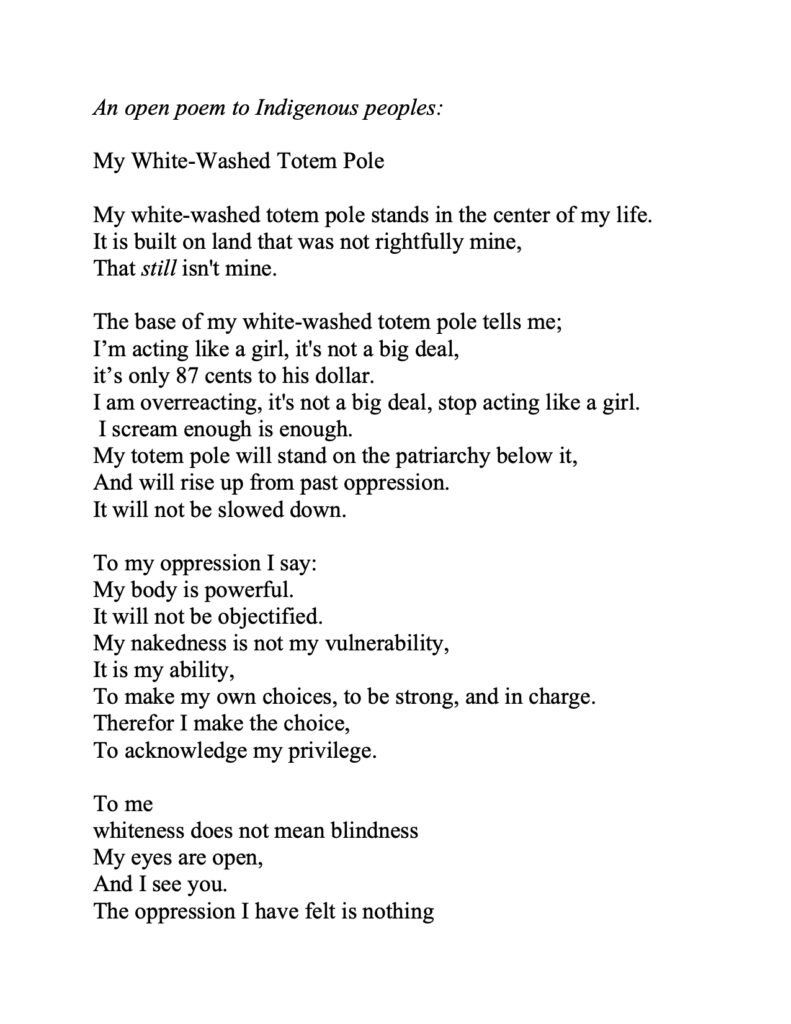
1 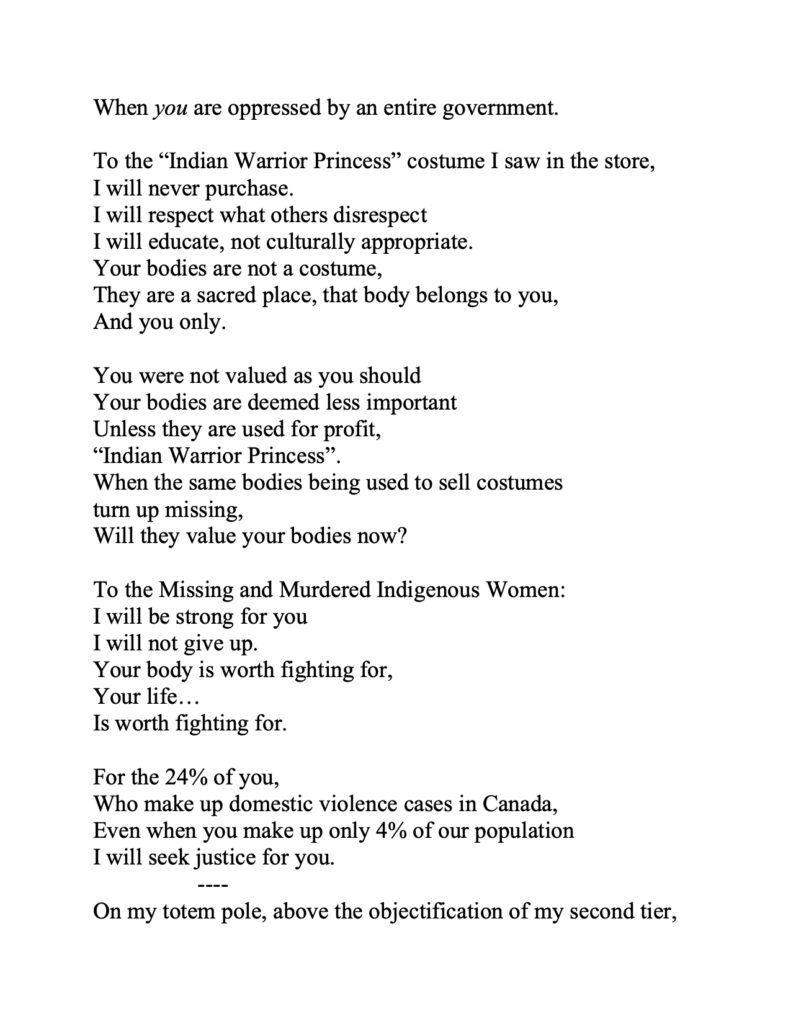
2 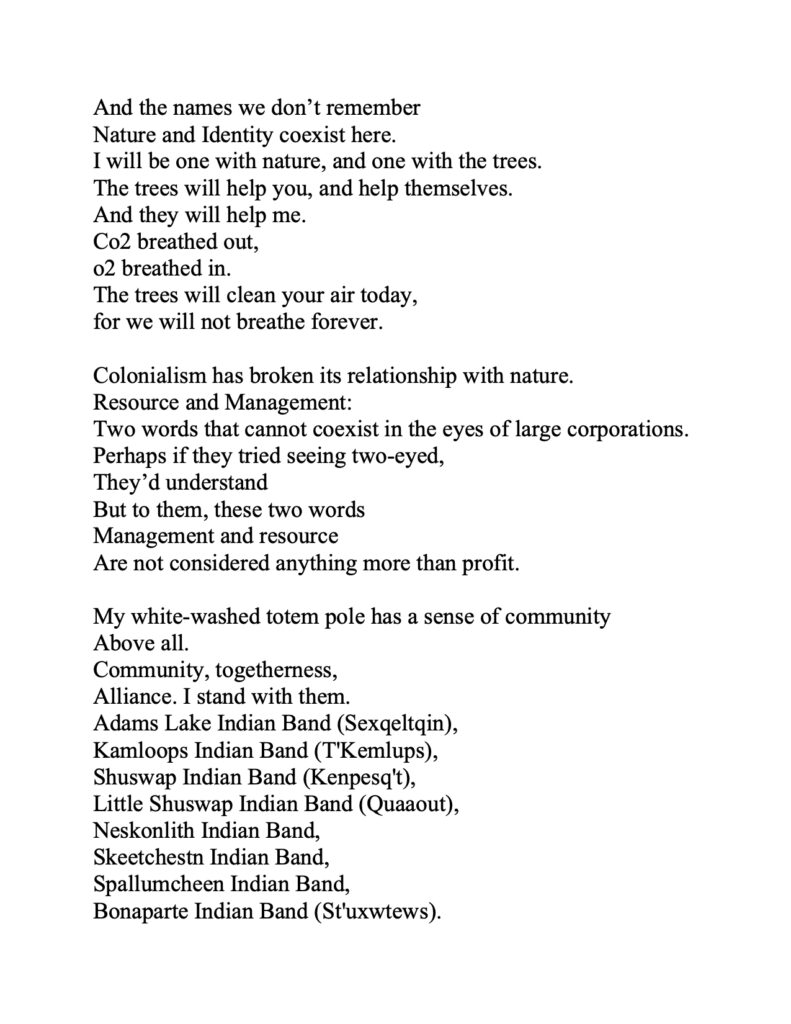
3 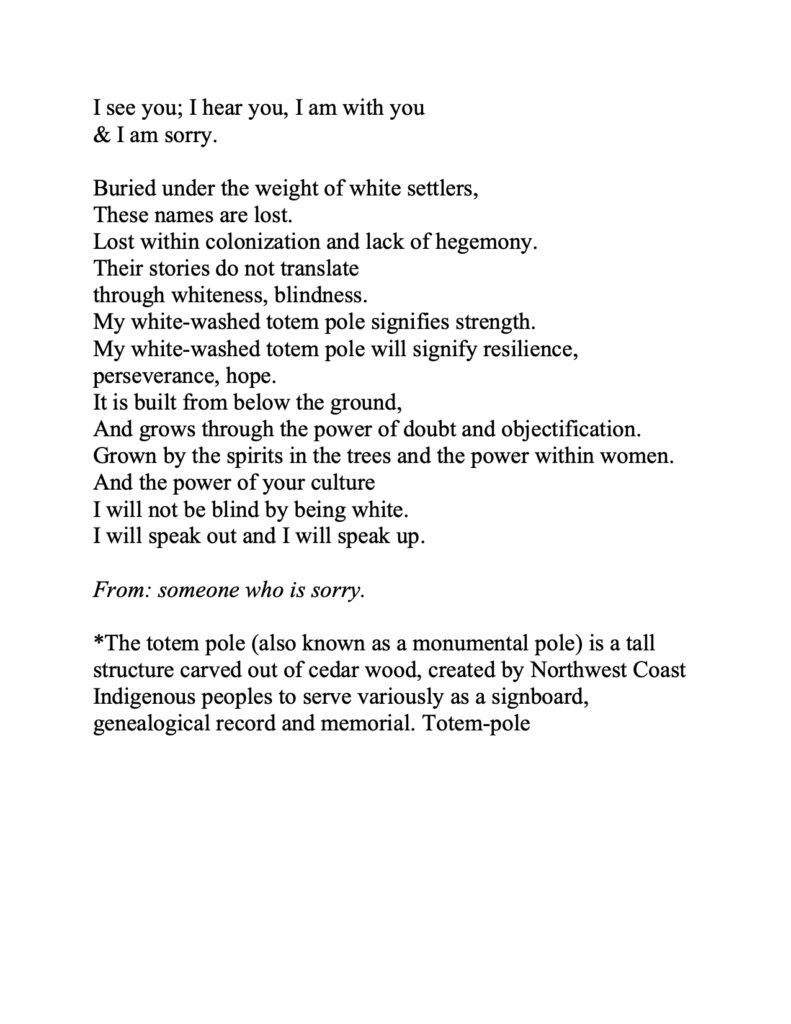
4
My Lesson/Unit Plans
Here are some lesson plans I have created for my future teaching career. My passions lie with grades K-3, and these lesson plans have been curated to support these age groups in the best way possible. The first unit is targeted at a grade 3 class, and aims to created a sense of identity and place. It focuses on the importance of names, and proper introductions within a new classroom while tying in aspects stemmed from the Medicine Wheel.
The second lesson I have attached was created for a grade 1 class on Orange Shirt Day. This lesson aims to allow students to explore what Orange Shirt Day is at an age appropriate level. Students are expected to establish a sense of emotion pertaining to the lesson, as well as create a clearer image of the truth behind Residential Schools.
Indigenous Philosophies Presentation
Indigenous-PhilosophiesThis presentation focuses on the key differences between Western World-Views and Indigenous World-Views. The education system is currently taking steps to merge these two philosophies to create a curriculum that acknowledges all ways of knowing and being.
Case Study Responses
I completed these case studies as a course requirement. But to my surprise, I ended up critically thinking about each study, as well as the prompting questions to go along with it. Taking one small article and realizing all the lenses that you can question, analyze, and reflect through gave me so much new insight.
How do you think social media will affect students’ understanding of historical events? (Response to “Brave New World”)
I really wanted to answer this question as I believe there are two strong sides to this – positive and negative. On the positive side, I think of First Peoples Principles of Learning. As a kid who attended elementary school in a world where truth and reconciliation was not a relevant issue, the history I was taught was a false in an attempt to paint my settler relatives as the hero of the story. Social media has such a powerful way to spread necessary information quickly (this can also be a negative).
By properly researching historical events, there is more than enough information to form an accurate idea of what actually happened during a specific historical event. Which allows students to elaborate their views and defy norms. Although history cannot change, we have proved single handedly that it can definitely be re-written. By having social media we are able to spread new information.
The downside of this is the internets ability to create a confirmation bias. You can research anything and prove it if you are trying to look for it.A result of this could actually enforce a negative relationship between history and students. *Confirmation bias is the tendency to search for, interpret, favor, and recall information in a way that confirms or supports one’s prior beliefs or values. Spreading false information is just as easy. Racism, although there is progress, is still existent, and social media allows individuals to freely express these views, and even confirm it through others. Social media regardless is dangerous when spreading any information, but when it comes to the contexts of history, you can only hope people choose to properly educate, and advocate for false history.
How are social norms and culture of a school likely to change if the library books are allocated to classrooms and the library is replaced by access to the Internet? (Response to “Let Them Eat Cake”)
Allocating library books to classrooms will cause a depletion of important discussions in the classroom. “Silent reading” is still a very relevant subject in BC’s school system, which allows students to explore and engage new topics they are curious about. If library books are allocated to classrooms, they will likely be curated for the specific learning in that classroom based around that specific grades curriculum. This is not a bad thing, however it causes limitations on exploring societal norms and cultural exploration. Books are not like the internet when it comes to learning about society and culture. If you simply look something up on the internet, a child may be bombarded with false information, that is often open to editing all the time without trace. A book however, stores information and allows us to look back on it. I remember a highlight of my elementary education was going to the library to exchange my books for the week. I had unlimited options to explore my curiosities. By replacing library access to access to the internet, we replace an irreplaceable part of the education experience, and system. The library system being depleted will also heavily impact the norm around the importance of books and reading. By removing libraries, the school system portrays the idea that books are less important than the internet.
